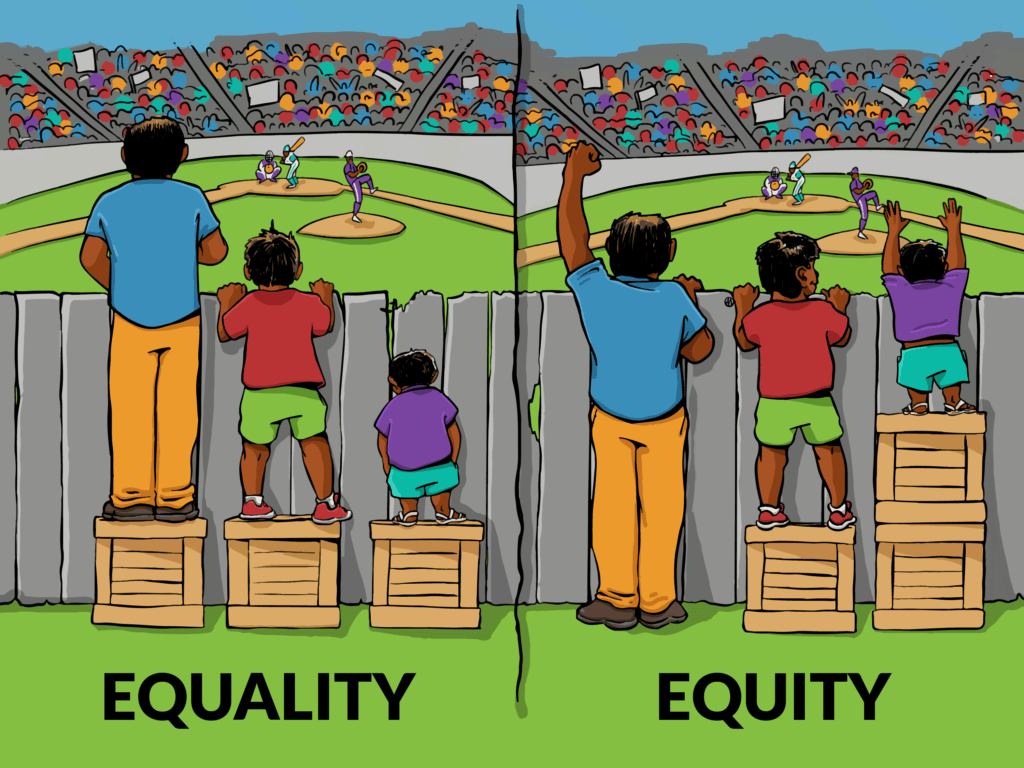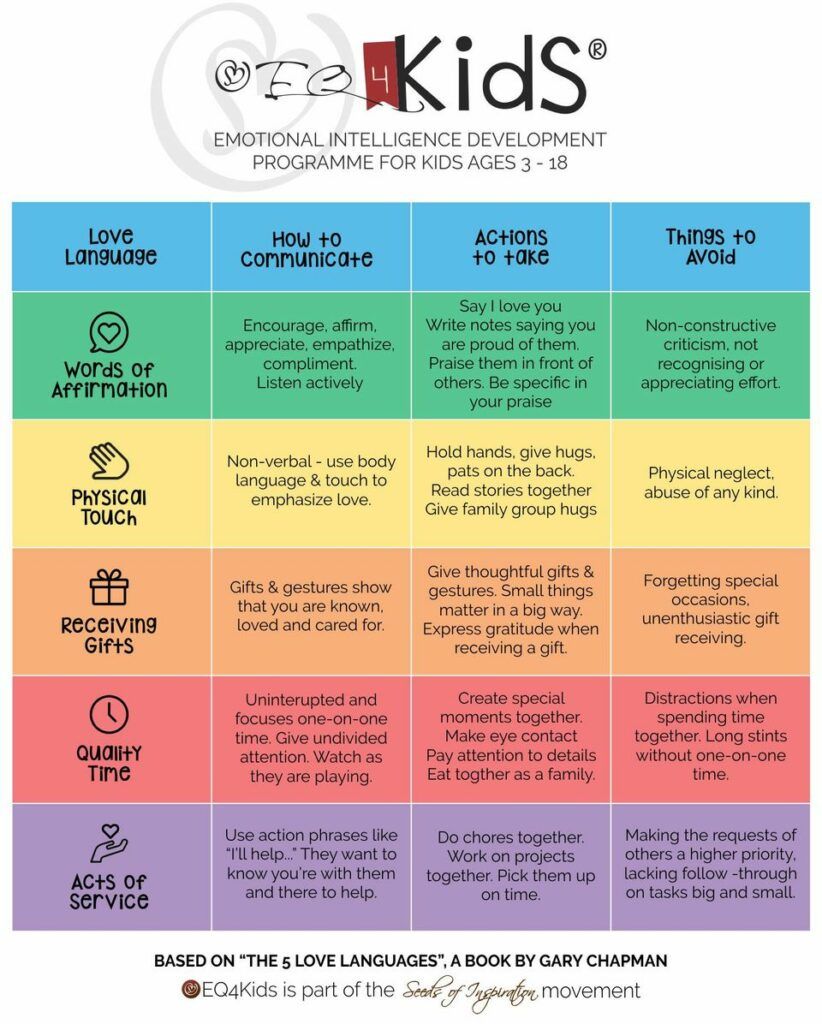
“That’s not fair!”
“You care more for Ryan just because he is younger!”
I treat all my children equally. Why does my child still complain that I’m not fair?
This was one of more common questions that puzzles parents when they received feedback from their children.
Equality vs Equity
Let us review on the concept of equality and equity. Equal means that everyone gets the same share while equity means that everyone gets the share that they need in order to achieve the same outcome.
To put it metaphorically, equal means you are serving same portion of meal to your children regardless of their age while equity means you serve portion of meal based on your children’s needs. Naturally, younger children require smaller portion.

Therefore, when your child told you that you are not being fair, you may want to re-think if your actions has been from the concepts of equality or equity. It may be a good start to explore the concepts of The 5 Love Languages® to look at how equality and equity can be demonstrated in this situation.
The 5 Love Languages ®
The 5 Love Languages ® by Dr Gary Chapman, an author, speaker and counsellor was published in 1992. The book addresses the ways romantic partners express and experience love. Since then, he has written other series including The 5 Love Languages of Children (1997). Dr Gary advocates for children to receive love in all five languages. However, parents do need to discover your child’s primary love language. The 5 Love Languages are word of affirmation, physical touch, receiving gifts, quality time and acts of service.
Dr Chapman theorizes that people tend to give love in a way they prefer to receive love and communicates better when the other party demonstrates in the way they understand. For example, your child complains that you did not spend enough time with him. From your perspective, you have spent time equally with all your children, maybe, watching movie together or doing activities together. Your child’s love language may be quality time where he requires one-to-one private time with you.
Let’s explore the 5 love languages in detail or read more from Parents.com to discover your child’s primary love language.
Words of Affirmation
Words of affirmation is how you use words to communicate. Children whose love language is words of affirmation may seem sensitive to the words that you use to communicate with them. Words of encouragement and a softer approach when making requests of your child would results in higher compliance and less frustrations. Harsh words or not recognizing their effort with words of encouragement would be detrimental in their emotional development.
Acts of Service
A child who shows love through acts of service are truly helpful. They would offer assistance in doing chores for you or helping in whichever way they can. Conversely, offer help while they are cleaning up or when it is their duty to do chores will convey your love to them tremendously. Here is where your actions speak louder than words.
Receiving Gifts
A child whose love language is through receiving gifts, they may bring back souvenirs from a walk in a park or leaf that they find interesting. As parent, you do not have to spend much money. A simple handmade card or a favorite candy on the way from your grocery shopping communicates much love to your child who loves receiving gifts.
Quality Time
All children crave time with parents. That is when you build relationship with your child. Younger children would naturally require more time with parents. However, for a child whose love language is quality time, they seek one-to-one and your full presence when you are spending time with them. This means no phone call interruptions or another sibling barging into your time with your child seeking for attention. It can be a simple 10-minute reading to your child before bedtime, once a week.
Physical Touch
Child whose love language is physical touch will find any opportunity to make physical contact with you – holding hands, cuddle or hugs. When you praise your child, a simple pat on the head or shoulder communicates a lot more love.

Are you treating your children equally in their eyes?
Now that we have explored the different love languages, what is your child’s primary love language? Are all your children demonstrating the same love language? Therefore, when you provide equal treatment to your children in the eyes of fairness, are you fulfilling their needs?
While you provide for your children their portion of meal, for a child who values
• Words of affirmation – praise them for finishing their vegetables
• Acts of service – serve their lunch in front of them
• Receiving gifts – decorate their meal like a surprise box
• Quality time – sit down with them while they eat
• Physical touch – pat them on the shoulder while praising them for finishing their vegetables
Conclusion
Treating your children equally from parenting perspective are great. That demonstrates fairness and your love for your children as a parent. However, for a child who is a unique individual, that fair treatment may seemed unfair. Thus, parents may hear complains from children that it is not fair. Using the concepts of the 5 Love Languages ® by Dr Gary Chapman and by understanding your child’s love language, it would improve your way of communicating your love with your child and fulfilling their need for your love.
Read more on fulfilling your child’s needs via Maslow’s Hierarchy of Needs from parenting children with special needs’ perspective